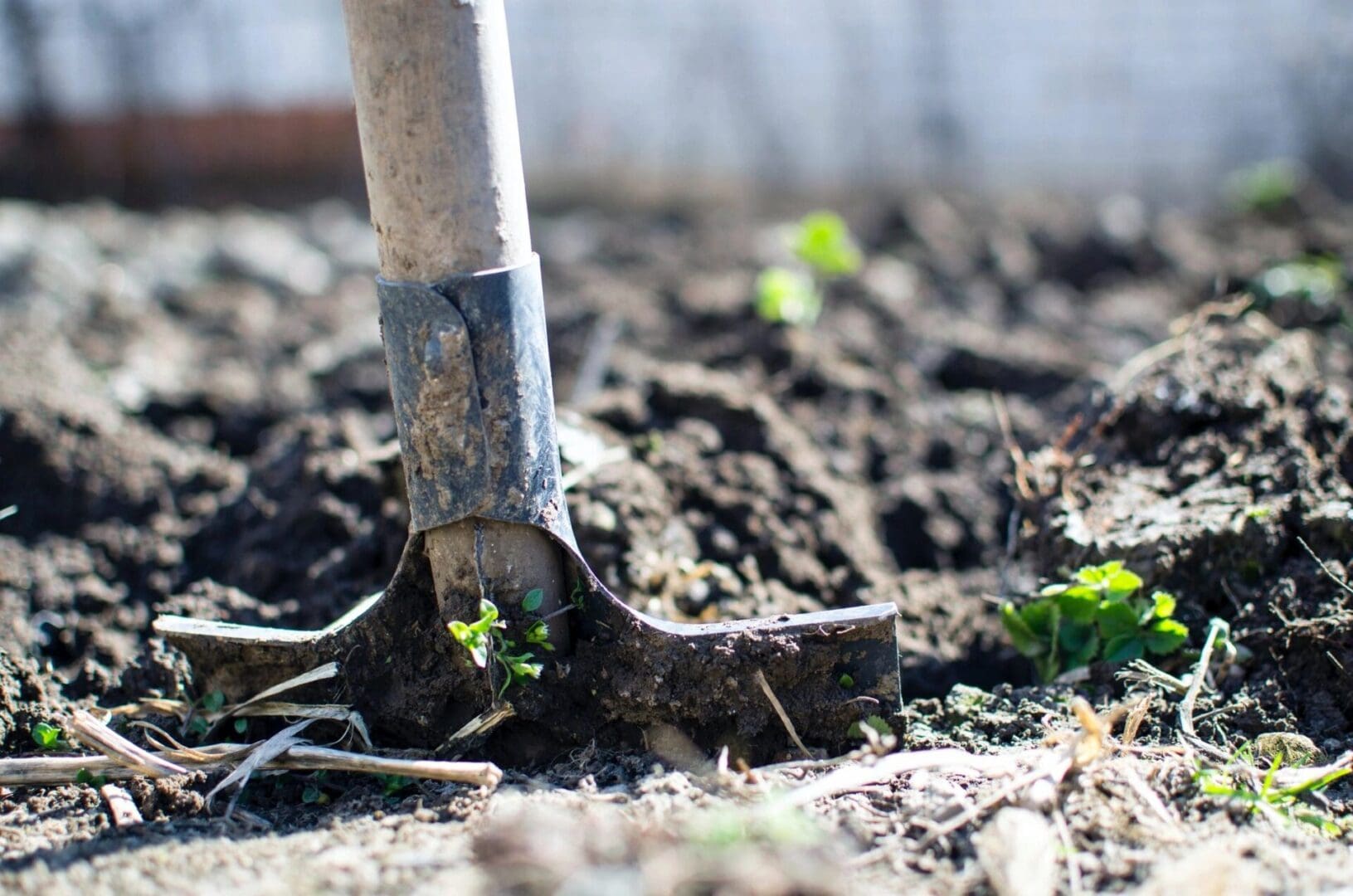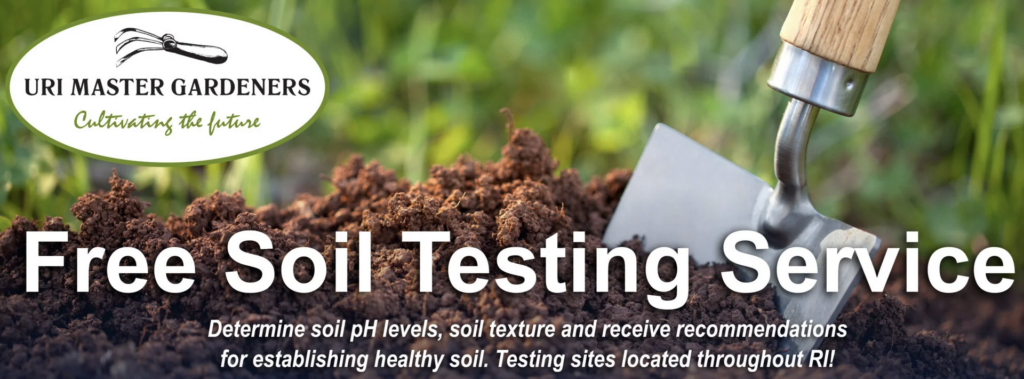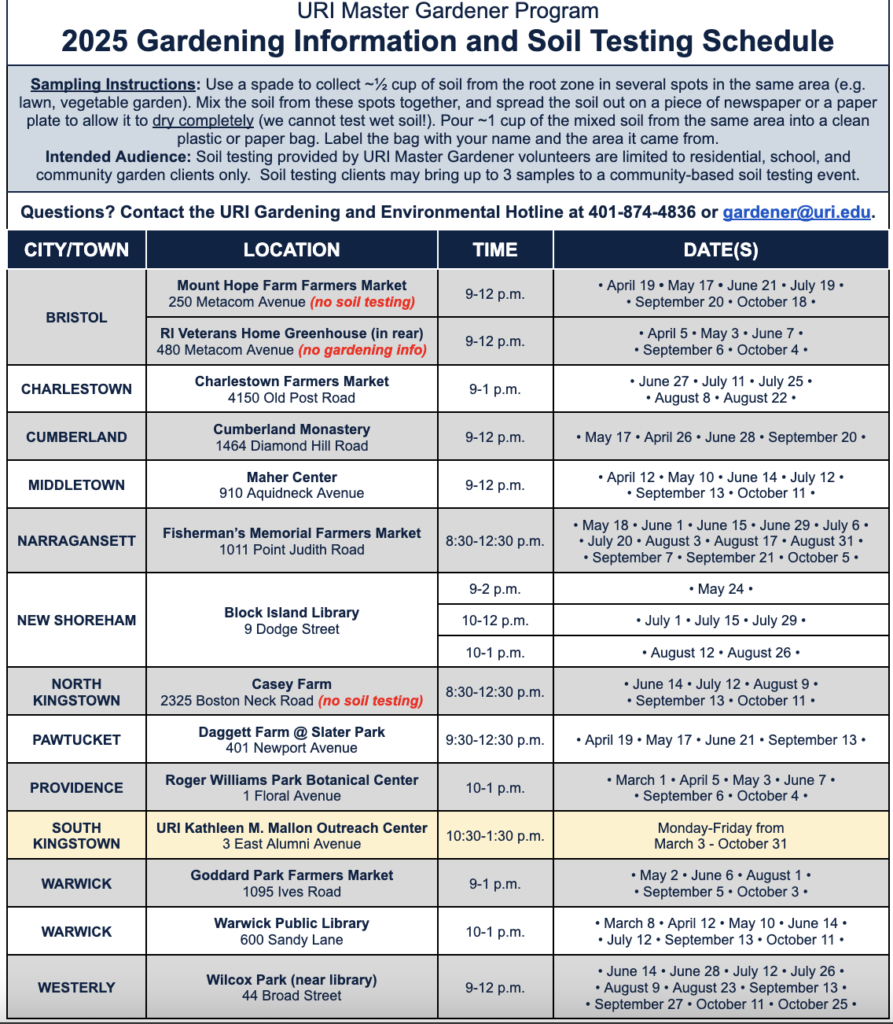Search Posts
Recent Posts
- U.S. Carries Out Limited Strike on Iran’s Known Nuclear Sites (Updates) June 22, 2025
- A Greener View: E. Coli vs. Vegetables, and Your Garden – Jeff Rugg June 22, 2025
- Rhode Island Weather for June 22, 2025 – Jack Donnelly June 22, 2025
- Ask Chef Walter: The Art and Science of Baking – Chef Walter Potenza June 22, 2025
- Gimme’ Shelter: Aurora is waiting for a home at the Providence Animal Control Center June 22, 2025
Categories
Subscribe!
Thanks for subscribing! Please check your email for further instructions.

On the grow in RI: We start at the very beginning. How good is your dirt? – Diane Schlindwein
By Diane Schlindwein, contributing writer
When it comes to growing plants and vegetables, all you need are dirt, water and sunlight. Right?
No, not always! Most of the time, planting experts recommend adding fertilizers to dirt; whether they are organic or inorganic is up to you. Moreover, some people are confused about the differences between fertilizer and compost and the roles they play in the garden.
“To put it simply, compost is to improve the health of soil, while fertilizer is to improve the health of plants,” explains Brad Leahy, the owner and vice president of Blades of Green, a lawn care and pest control company. “Fertilizers add the nutrients that plants need that soil may be missing, and compost helps make the soil a friendly environment for the plant to thrive.”
And fertilizers are a bit more complicated. “The most important thing to keep in mind is NPK — nitrogen, phosphorus, potassium — with an emphasis on nitrogen that promotes plant growth,” says Leahy. “For gardens, phosphorus is also important, as it helps promote deeper roots and aids in the development of fruits and flowers.” Finally, plants need potassium to make carbohydrates and protein.
“Most people don’t consider the importance of the microbiology in their garden soils,” adds lawn and garden expert Douglas Derick. “One of the most important differences between organic and synthetic fertilizers is their impact on the soil microbiome. Organic fertilizers help to feed the beneficial bacteria and funguses present in your soil, as well as provide nutrients to your plants.”
According to Derick, “These bacteria not only ward off invasive and harmful microbes, they also act to chelate minerals in the soil, making the nutrients more readily available to your plants, unlike synthetic fertilizers which can be disruptive to the soil microbiome.”
“In the simplest of terms, inorganic fertilizer is going to be cheaper, which is great for those that are focused on short-term results,” says Leahy. “However, the benefit of organic fertilizer is that it is going to continue to improve the health and balance of your soil over time. Continued applications of organic fertilizer will compound, constantly creating a better soil composition.”
Zach and Iris Nathan, the co-directors of Gingerhill Farm Retreat in Hawaii, are big believers in adding compost to gardens. They say compost contains many of the same nutrients as fertilizers do, but compost also contains a broad array of beneficial creatures such as earthworms and microorganisms. Just using fertilizer is like taking a multivitamin, but they say adding compost is “like a multivitamin and a probiotic rolled into one.”
Many organic growers believe in applying animal manure to their gardens as fertilizer. However, even fresh non-composted manure — a favorite with some gardeners because it is rich in nitrogen, phosphorus and potassium — can also damage plants, especially if it contains a harmful amount of salts. That’s why it’s best to use aged animal waste.
Gardeners need to be careful when applying any fertilizer. Many chemical and inorganic fertilizers are soluble and concentrated. If you get too zealous with the application, you can easily apply too much and damage your plants. Fast-release synthetic fertilizers can be compared to caffeine. (Think of the jolt you get from a strong cup of coffee.) If you use too much synthetic fertilizer, your plants may begin to depend on regular infusions to survive. So take it easy and don’t over-fertilize.
Leahy concludes that it pays to do your research when deciding on fertilizers. You can ask a master gardener, check with your local Cooperative Extension Service office, look around at your local hardware store or simply go online. “There are many online resources to help find an organic fertilizer recipe that works for you,” Leahy assures.
___
Did you know?

URI Master Gardeners offer free soil testing for YOU!
URI Soil Testing Service
- Attend a community event where our Gardening Information and Soil Testing booth will be. See locations, below:
- Drop off your sample with a Soil Test Result Report Form Monday – Friday, 10:30 a.m. – 1:30 p.m. or mail in a sample. Print the form, complete it and send it along with your sample to URI Cooperative Extension, 3 East Alumni Ave, Kingston, RI 02881. Please include ‘Attn: Soil Test’ on the envelope.

https://docs.google.com/document/d/19X0P83mlM-zzbwcv3T9PjM02FHxPhdLwKJ3Wten7tGA/edit?tab=t.0
More detailed information about soil and gardening can be found at the URI site: https://web.uri.edu/coopext/services/gist/
